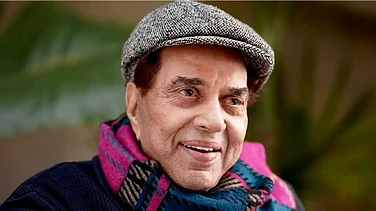‘Entertainment, entertainment, entertainment – and that’s what movies are all about’ goes a popular dialogue from the movie ‘The Dirty Picture’ starring Vidya Balan. This statement holds true for all commercial movies that have been made in the past 110 years of Indian cinema. Filmmakers have come and filmmakers have gone, and they have all tried to bring their own flavour to this popcorn entertainment-seeking audience. While there have been filmmakers like Manmohan Desai, Prakash Mehra, Yash Chopra and many others who had been flying the flag of commercial cinema with great zeal and success in the previous century, in the last three decades one man has taken the level of commercial cinema to absolutely new heights, and that is Karan Johar.
He arrived in the late 1990s and completely revolutionised the commercial Indian movie market. He gave a new meaning to the escapist cinema. Yash Chopra in the 1970s-80s had already started taking audiences to foreign locales. His son, Aditya Chopra, with his massive successful venture, ‘Dilwale Dulhania Le Jayenge’ opened up the doors for audiences to enjoy a Western feel in their movies. Karan Johar just took this to an entire new diaspora of audiences – the rich, wealthy and urban populace. He tried to cater to the Indians living abroad.
Karan Johar has tried to always maintain a narrative that tries to remain grounded in a genuine Indian setting – but in his own escapist ways.
When he made his directorial debut with ‘Kuch Kuch Hota Hai’, he altered the notion of Indian college life. Up until then, the Indian audiences had gotten used to the representation of students and college life in a very delicate and rather sympathetic way. But with ‘Kuch Kuch Hota Hai’, Indian audiences were up for a cultural shock when they saw a pretty much unheard-of college atmosphere which could just exist in fantasies. However, that didn’t mean that audiences didn’t flock to theatres to watch the film. It was one of the biggest hits of that decade, and one of the prime reasons for the movie’s success was the radical showcasing of college and student life.
In his subsequent films also, Karan Johar continued to cater to a huge segment of the Indians living abroad. With films like ‘Kabhi Khushi Kabhie Gham’, ‘Kal Ho Na Ho’, ‘Kabhi Alvida Naa Kehna’, ‘Dostana’, etc he continued to give audiences an immersion into exotic locales, melodic music and a dream world where everything seems to work out for the good at the end of it all.
However, Karan Johar has time and again been at the receiving end of harsh criticism for his sort of escapist cinema. For example, does a school like St Teresa, which was shown in ‘Student Of The Year’ films, ever look real? But despite the criticism audiences love to get themselves immersed in his escapist world. Like no one in India would have known how a prom night would have felt like in an Indian setting until Karan Johar showed it in ‘Kabhi Khushi Kabhie Gham’ or the ‘Student Of The Year’ movies. Karan Johar just picked up the things from the West and tried to dip them in an Indian milieu. How far he succeeded in keeping it real is obviously debatable.
Karan Johar may have been mocked by the audiences quite a few times for creating movies about exclusively the wealthy, but no one can deny the fact that he knows his audience. People may troll him for his outlandish storytelling but there would be barely a few who would have missed any of his directorial ventures. The world he creates may not be realistic or even feasible, but his audience sure loves to submerge themselves into his stories. Possibly one of the reasons why none of Karan Johar’s directorial ventures has bombed at the box-office.
Even ‘Kabhi Alvida Naa Kehna’, which didn’t do as much business as his other films managed to, was referred to as a film ahead of its times. Back in 2006, when the movie hit screens, adultery wasn’t that common a topic to be talking about so openly, and Karan Johar decided to weave a story around that, which probably didn’t strike the bull’s eye with the audiences.
Ever since he took over the reins of Dharma Productions after his father Yash Johar passed away, Karan Johar has just taken the production house to new heights. So much so that it is now considered one of the topmost movie production houses in the country. He has backed some out-of-the-box scripts and some of them have done really well with the audiences. Films like ‘Wake Up Sid’, ‘Dostana’, ‘The Lunchbox’, ‘Baahubali’, ‘Raazi’, ‘Shershaah’, and many others were backed by Karan Johar despite being way different from the kind of stories that he himself writes or directs. If he has done a ‘Student Of The Year’, he has also done a ‘My Name Is Khan’. If he has backed a ‘Drive’, he has also backed a ‘Raazi’.
In a career spanning almost 30 years, on one side he has showcased life in a fantasy land with big mansions, and schools where kids go to proms and have unreal experiences, but on another side, he has even managed to give the audience some heart-touching stories. People saw different shades of love and ‘falling in love’ through his films.
As far as the tag of escapist commercial filmmaker goes, he himself once said in an interview with sify.com, “Cinema is all about creation and the result of your own kind of aspiration as a human being. If you are not good-looking, you want to show good-looking people in your films. If you are not thin, you want to show them walk on the beach looking hot and sexy. So, if you haven't had a glamorous school or college life, you just want to show that.”
“Escapism has everything to do with cinema and I am an escapist by nature and therefore it presents itself on celluloid as well,” concluded Karan Johar.























